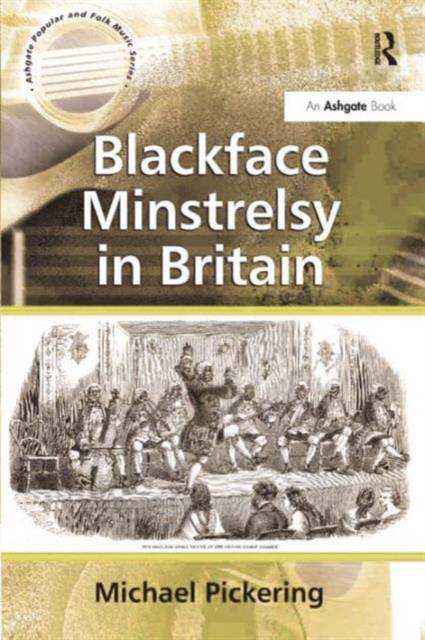
- Retrait gratuit dans votre magasin Club
- 7.000.000 titres dans notre catalogue
- Payer en toute sécurité
- Toujours un magasin près de chez vous
- Retrait gratuit dans votre magasin Club
- 7.000.0000 titres dans notre catalogue
- Payer en toute sécurité
- Toujours un magasin près de chez vous
Description
Blackface minstrelsy is associated particularly with popular culture in the United States and Britain, yet despite the continual two-way flow of performers, troupes and companies across the Atlantic, there is little in Britain to match the scholarship of blackface studies in the States. This book concentrates on the distinctively British trajectory of minstrelsy. The historical study and cultural analysis of minstrelsy is important because of the significant role it played in Britain as a form of song, music and theatrical entertainment. Minstrelsy had a marked impact on popular music, dance and other aspects of popular culture, both in Britain and the United States. Its impact in the United States fed into significant song and music genres that were assimilated in Britain, from ragtime and jazz onwards, but prior to these influences, minstrelsy in Britain developed many distinct features and was adapted to operate within various conventions, themes and traditions in British popular culture. Pickering provides a convincing counter-argument to the assumption among writers in the United States that blackface was exclusively American and its British counterpart purely imitative. Minstrelsy was not confined to its value as song, music and dance. Jokes at the expense of black people along with demeaning racial stereotypes were integral to minstrel shows. As a form of popular entertainment, British minstrelsy created a cultural low-Other that offered confirmation of white racial ascendancy and imperial dominion around the world. The book attends closely to how this influence on colonialism and imperialism operated and proved ideologically so effective. At the same time British minstrelsy cannot be reduced to its racist and imperialist connections. Enormously important as those connections are, Pickering demonstrates the complexity of the subject by insisting that the minstrel show and minstrel performers are understood also in terms of their own theatrical dynamics, talent and appeal.
Spécifications
Parties prenantes
- Auteur(s) :
- Editeur:
Contenu
- Nombre de pages :
- 270
- Langue:
- Anglais
- Collection :
Caractéristiques
- EAN:
- 9780754658597
- Date de parution :
- 13-03-08
- Format:
- Livre relié
- Format numérique:
- Genaaid
- Dimensions :
- 156 mm x 234 mm
- Poids :
- 557 g

Les avis
Nous publions uniquement les avis qui respectent les conditions requises. Consultez nos conditions pour les avis.






